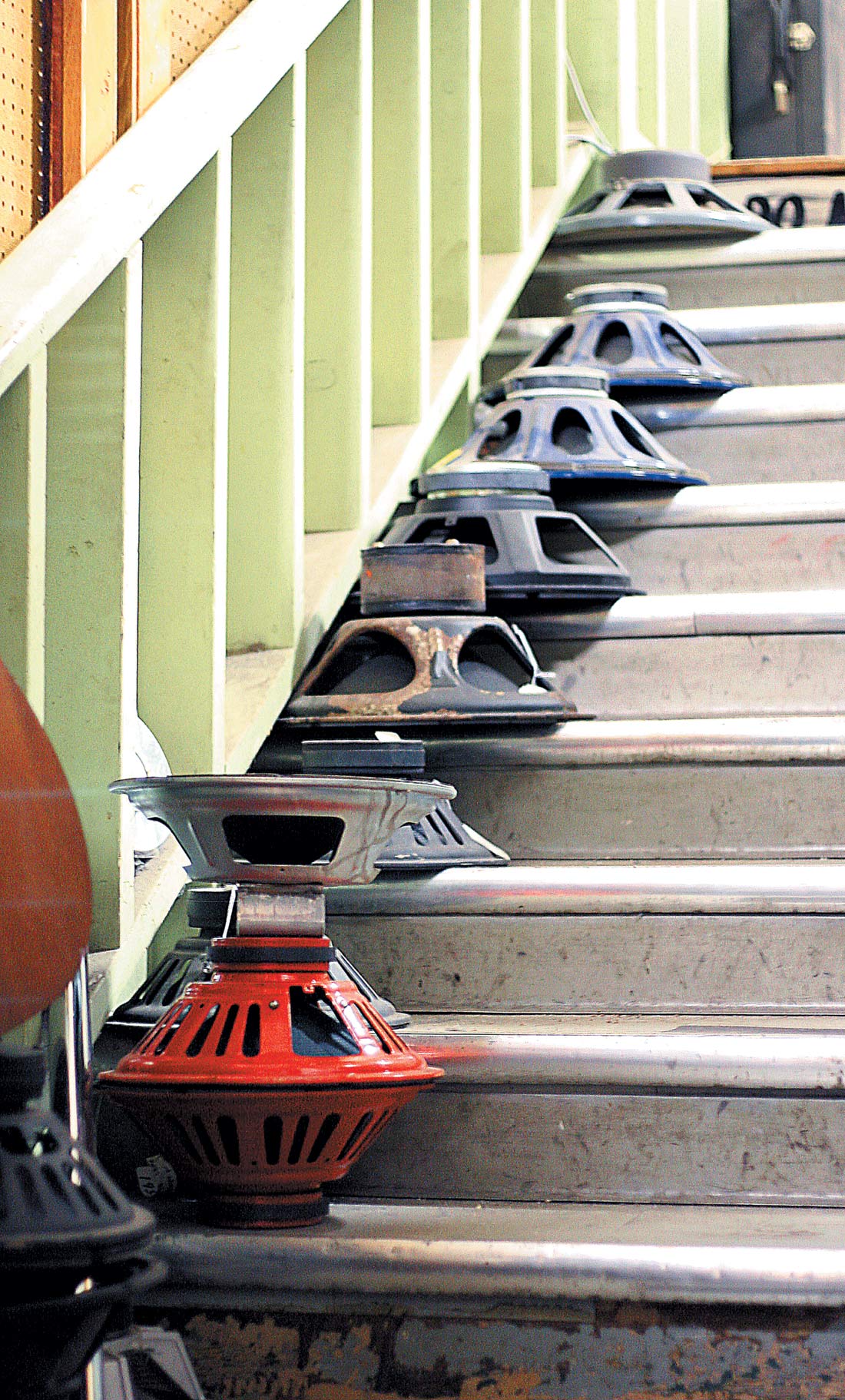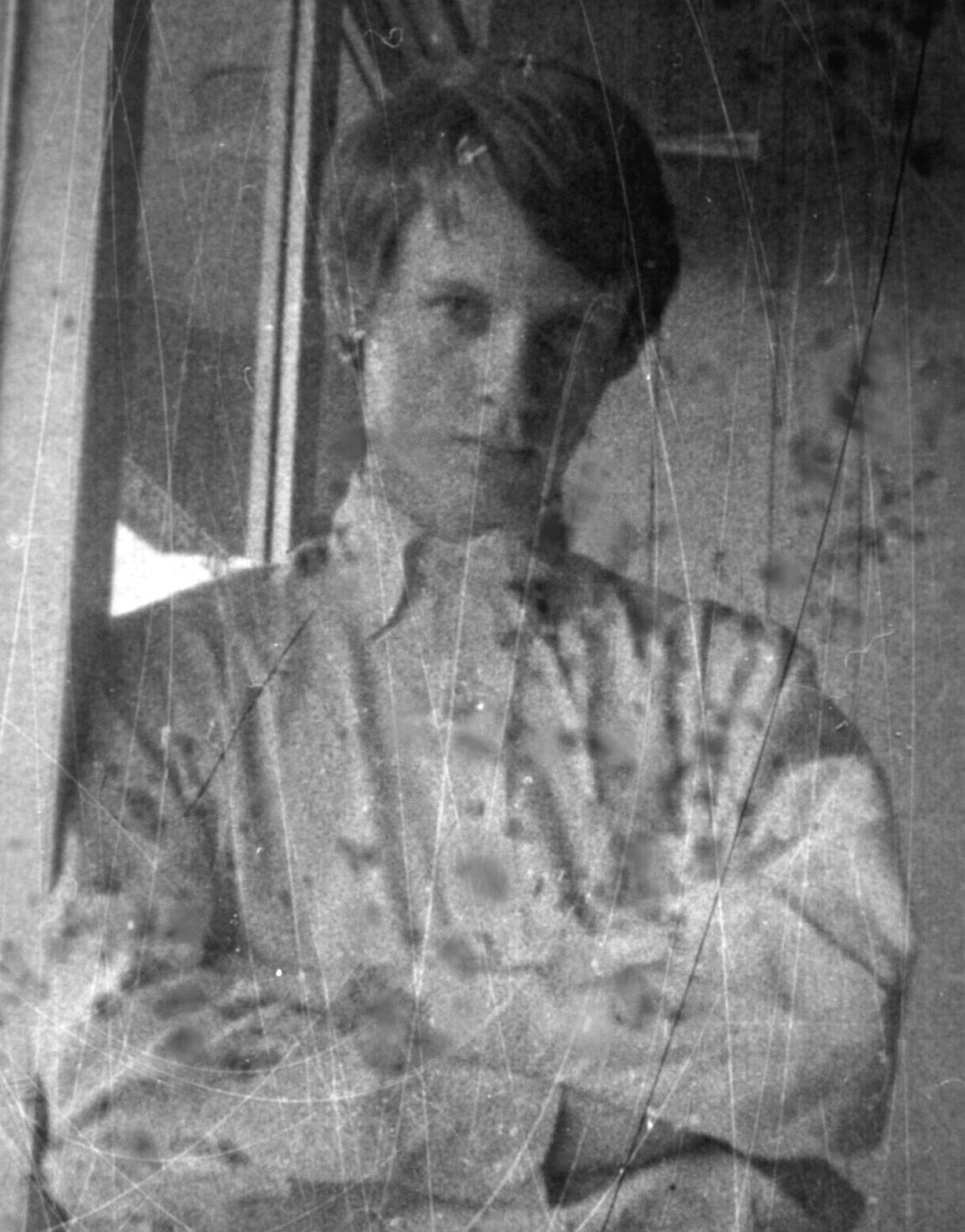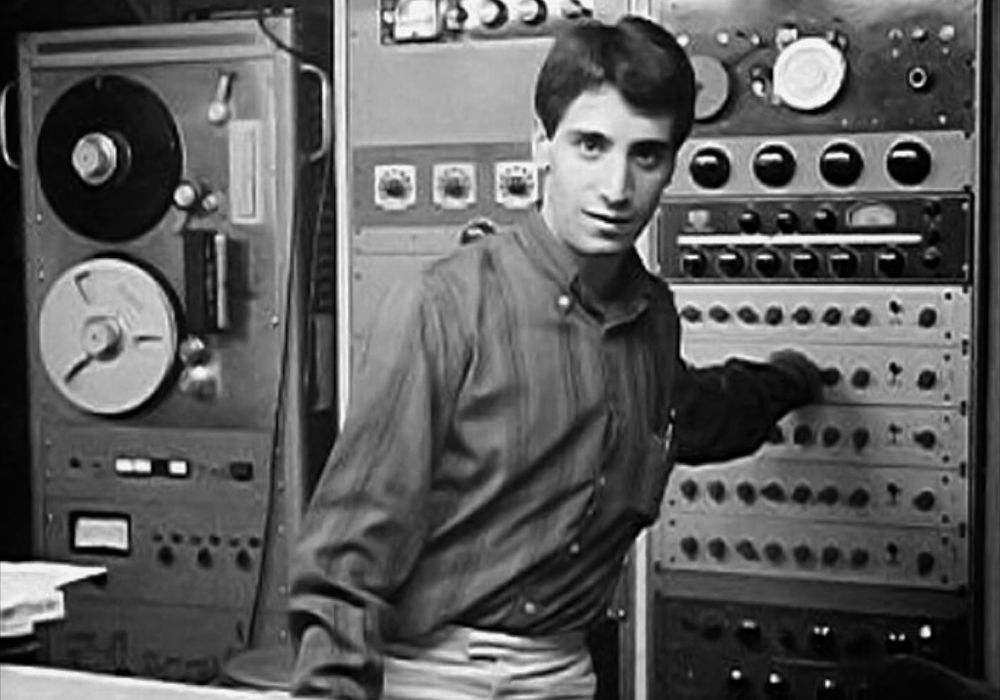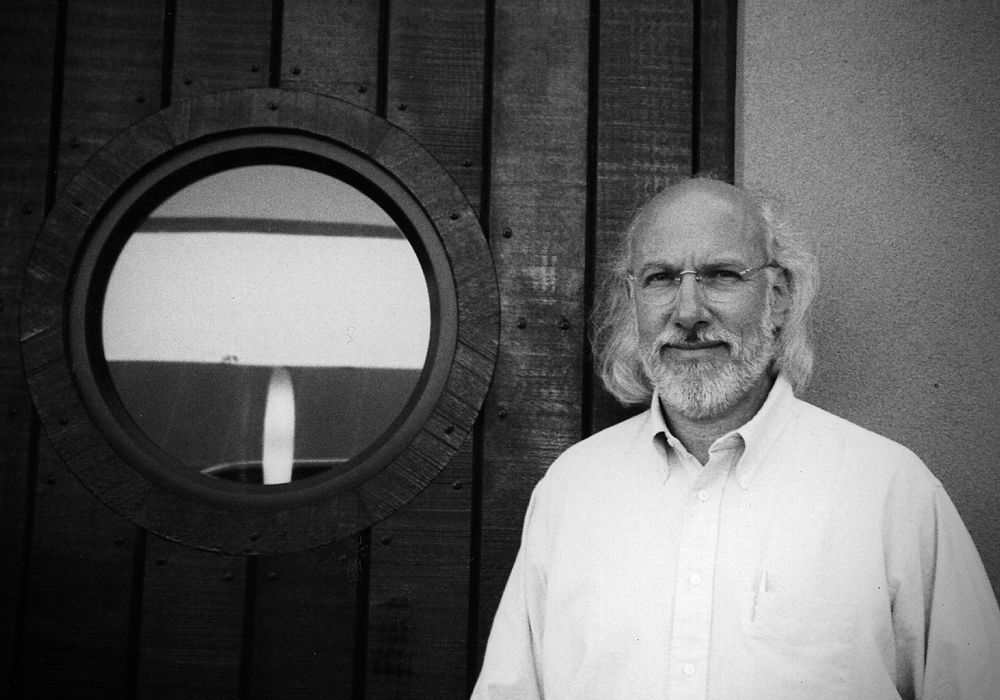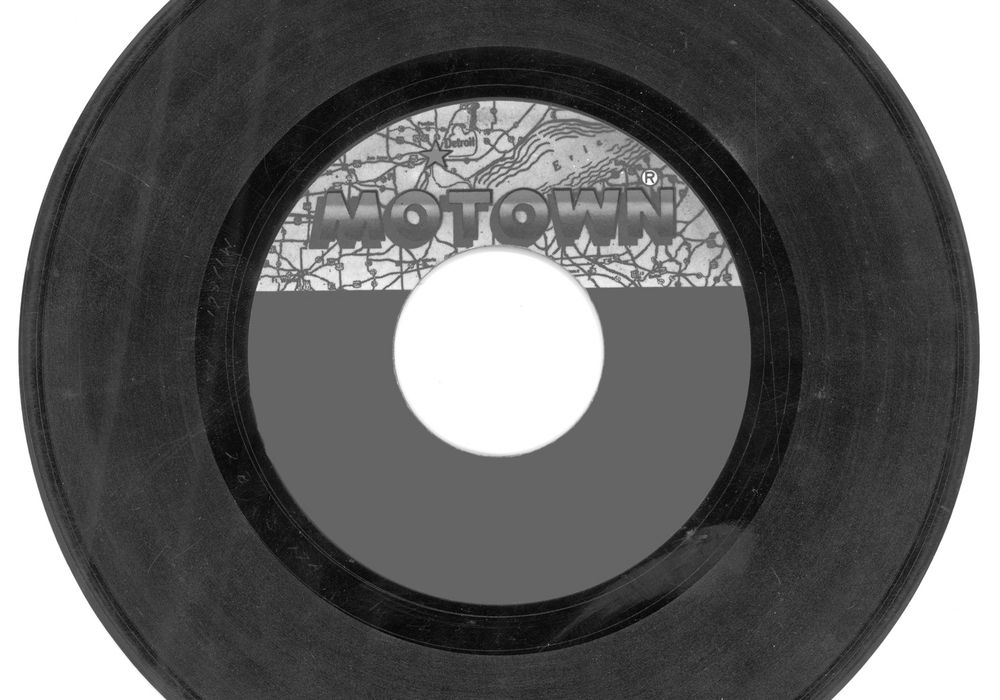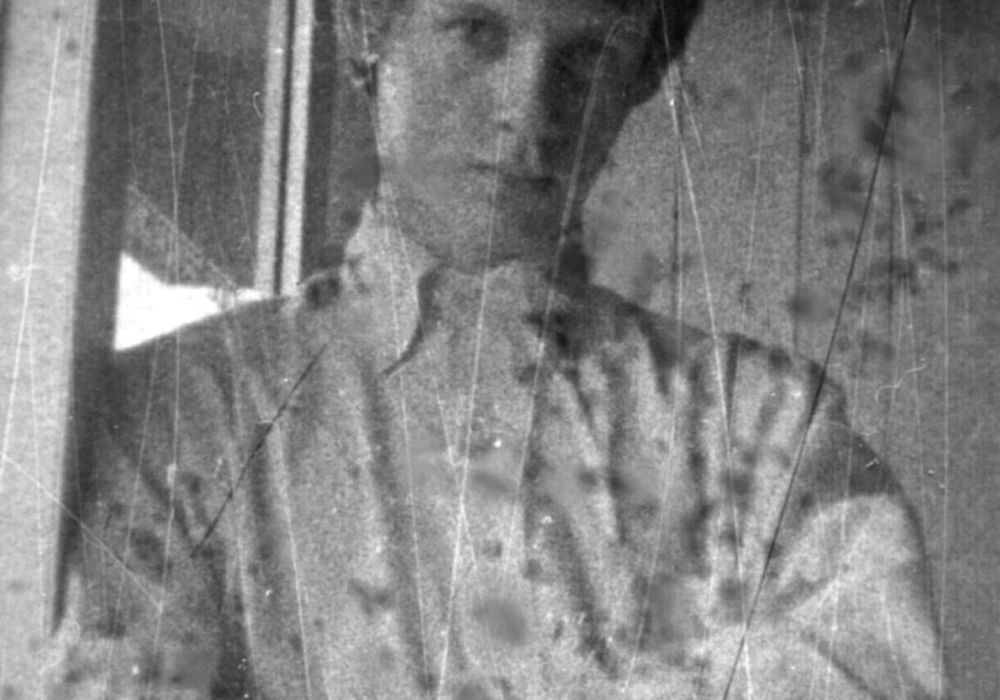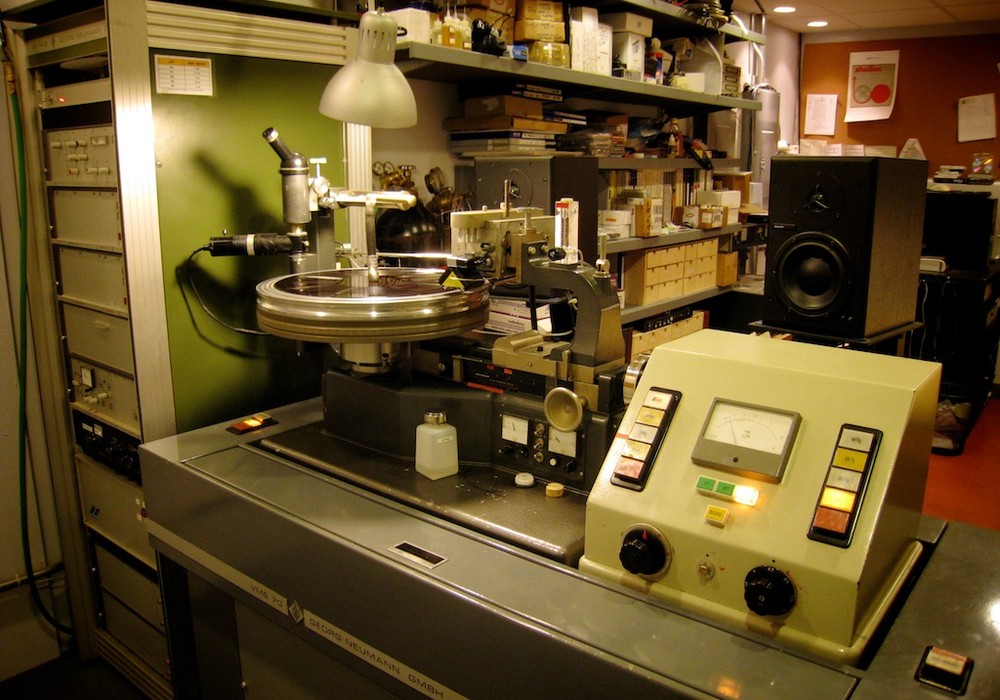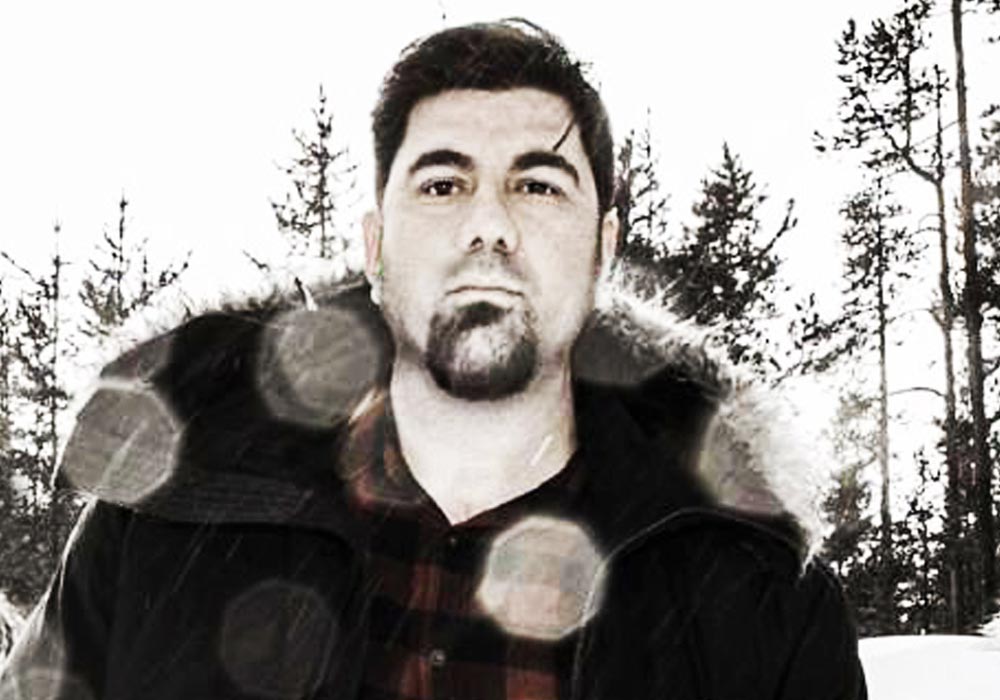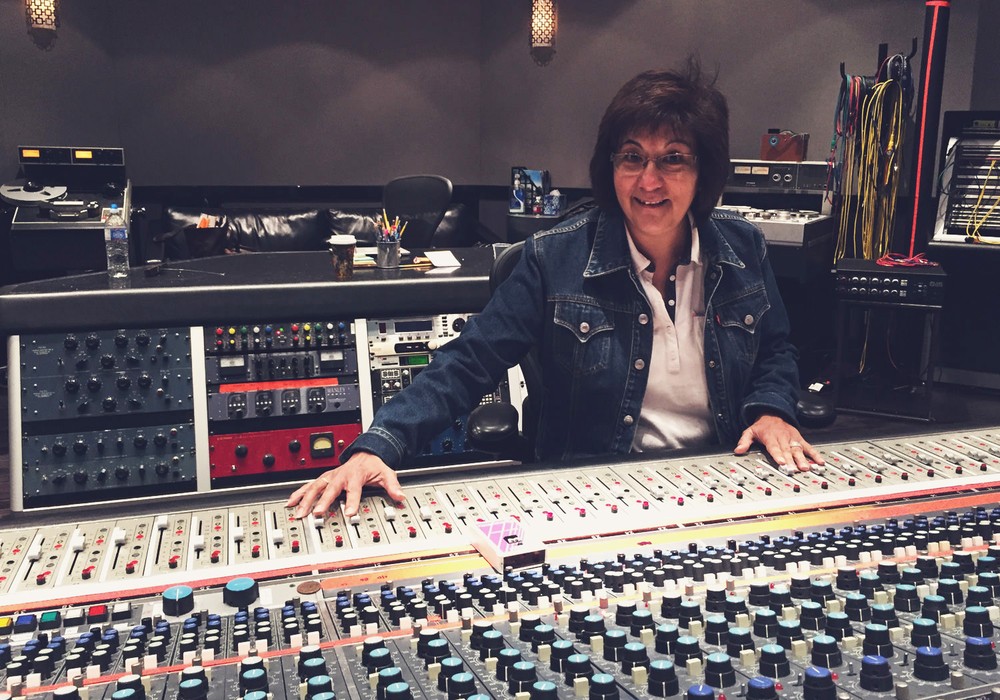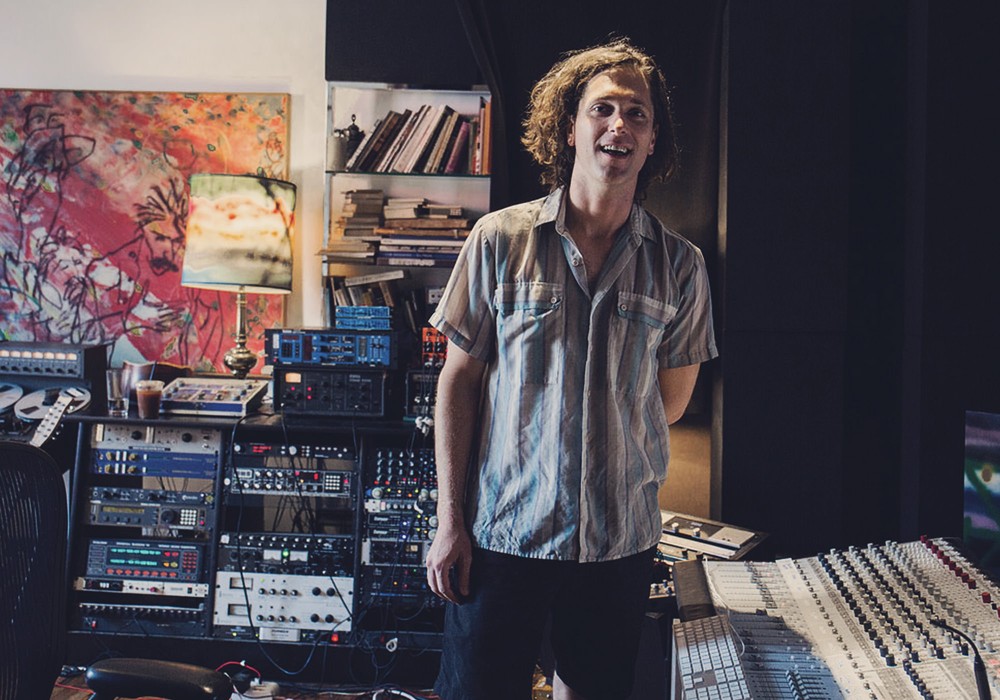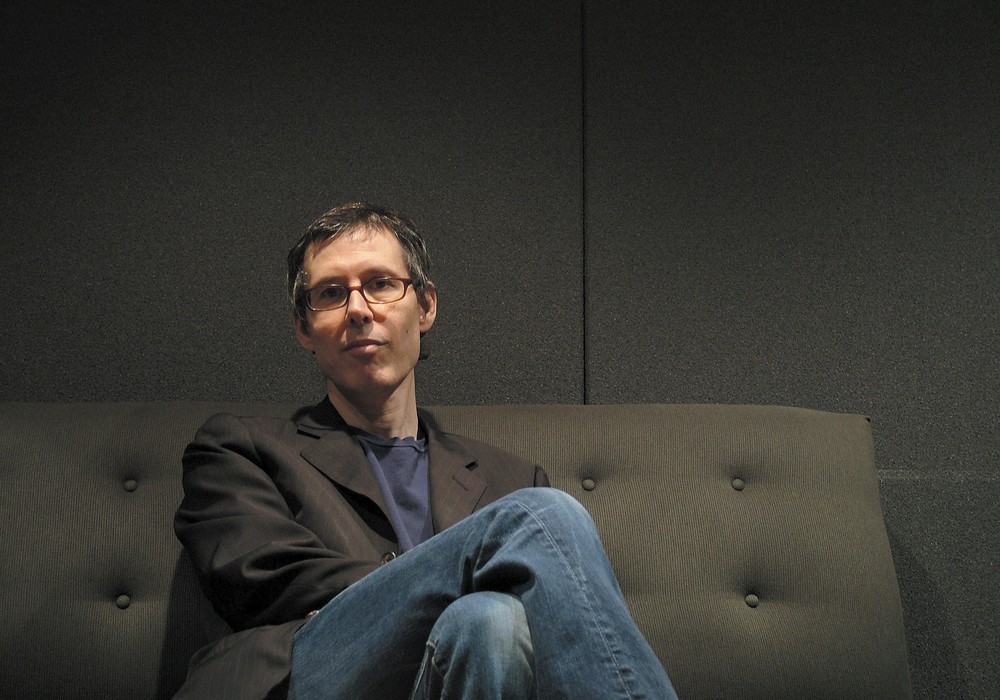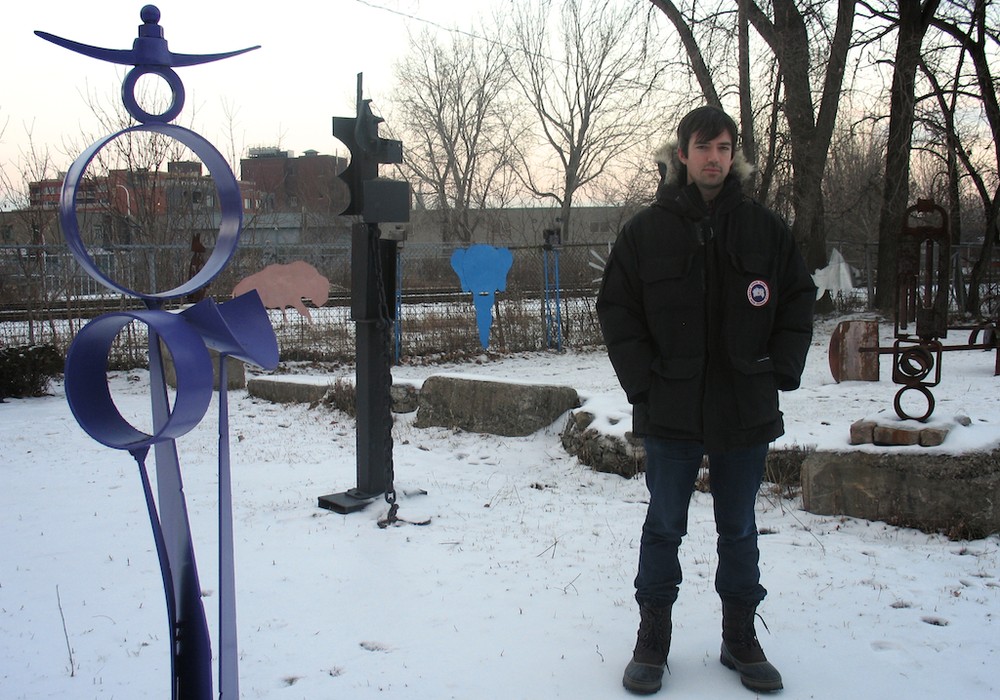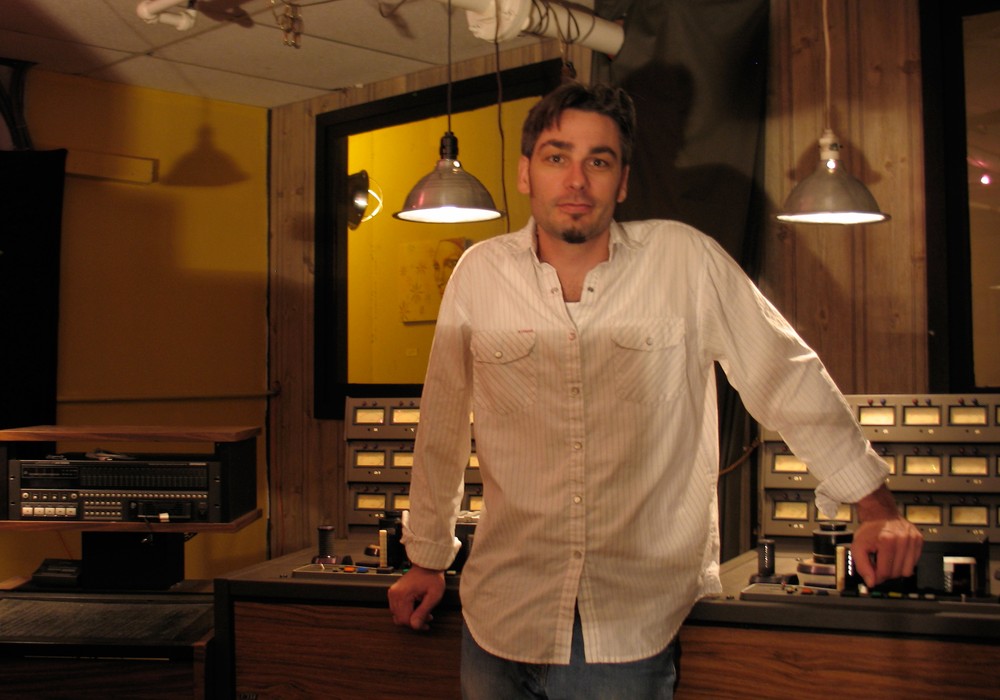Terry Manning is one of my heroes. His career has encompassed working with many Stax and Hi artists — Rufus Thomas, Booker T., The Staple Singers, Al Green; working with some of rock's finest — ZZ Top, Big Star, Led Zeppelin; and still leading a busy life these days, running Compass Point Studios in the Bahamas and making time to mentor via his online forum at RE/P. Terry seems astonishingly youthful, bursting with health and intelligence. Compass Point, across the road from the ocean, featuring office space for the band's manager, a full shop, mastering suite and two big studios (one Neve and one SSL) is a unique setting to make an album. There is sea salt in the control room windows to absorb humidity, and the thatched roof vocal booth built for Mick Jagger sits in the room in which Back In Black was recorded.
So, what's it like running a world-class studio?
I've been in studios that are almost unknown, that to me were world-class in the way they dealt with me, their equipment worked and the product I got out of them, and I've been in studios that have a world-class name, where people were rude, stuff didn't work and I wouldn't want to go back. It seems to me most people lose sight that it's not a gear business. It's a people business — it's a human thing. Gear's a good thing, but let's be honest, most studios roughly have the same gear — with different exceptions, some better and some worse, but basically it all does the same thing. I could go into a radio station on an old radio board and make a record; Bob Clearmountain [Tape Op #84] could get on a Mackie and mix a good record. So to me, maintenance — yes. Climate and location — very good. But people and the way you interact with them is the key factor. Everyone seems to be focusing so much more on the process, the gear and the business side of it, and it's really not any of those at its forefront. It's someone emoting, someone else understanding that and then ideally having been touched, spending their money for it. But certainly the emotion part is less and less to so many people who are trying to do it. Still, back to gear! [laughter] This room sounds great. When we came here in '92, I decided this is not going to be a chrome, glass and steel, modern looking facility. I'm going to keep the ambience here, keep the wood, keep the fabrics, keep the way it's always been for the great stuff that was done here before I came here. I like the feel of it — I like to personalize it, you know? So I've kept it like that, but upgraded all the signal paths and done everything I could sonically, of course.
When was the studio built?
'77, '78... Back in Black, Mutt [Lange] said he had drums in the corner, facing out. It's just genius acoustics, whether fully intended or not — sometimes it's a black art, a weird science and it's half luck. The vocal booth was built for Mick Jagger so that he could sing with the band and get some isolation. It's not the world's greatest booth maybe, but it works. When we had Jimmy Buffett coming in for a session I went out and got some palm leaves, put them up on top, and just left 'em there. The Christmas lights make it. I think when he was here, we even had a surfboard leaning up against it.
Let's talk about your history a bit.
My father was a minister and would move every two to three years, usually. We had moved to El Paso, Texas at the time I was just entering junior high school, and that's the time that if you're really going to be in music you get the guitar and start banging around. They had this little dance downstairs in the cafeteria at Austin High, and the guy that came and played for it was Bobby Fuller. He was the big local star. I went up and started talking to him and we became friends. I ended up on several gigs sitting in and playing with him, or he'd let me sing a song here and there — it was usually "Oh Donna" [laughter], once "Peggy Sue" though. He was quite a talented guy, and it was really good to have someone like him. He had his own home recording studio on, get this, Album Avenue. Fantastic. His parents were quite supportive of this, so they let him basically take over the house. The living room became a studio room — they just moved the furniture out, and they actually built an echo chamber outside on the side of the house. It looked like a fallout shelter, a long, concrete thing. He had an Ampex, but that long ago I'm not sure — I wasn't into the gear as much. He was recording some good records, had his own label, had his own club — he was really the entrepreneur. So when I first started hanging out with him I thought, "Man, this is the top. This is it! This guy does everything. This is what I want to do." Right about the time Bobby left for L.A., my dad was moving, and one of the places on the list to go check out was Memphis. [In Memphis] I was in the ninth or tenth grade and instantly met a guy who had just fired the keyboard player in their band. I went up and said, "Hey, I can play keyboards", and ended up joining the band. I couldn't play keyboards really [laughter]. I was basically a rhythm guitarist, but my mother was a piano teacher and I knew some piano. I told my Dad, "You've got to buy me a keyboard. I'm in a band." So he took me down and got me a Wurlitzer electric piano, which was a good choice. I started playing with this band, Bobby and the Originals. We played a lot of gigs all over town, played two or three gigs a week, and got quite popular on the local scene. They had recorded some demos, trying to get on a local TV show called Talent Party. They wanted on the show so they went down to a pretty dumpy (but now we would say cool) studio called Sonic and recorded this four song demo. Well, it didn't come out terribly good, and they were trying to get it to sound better, so they took it to the very young John Fry, who had a home studio — although it was quite good, professional. I had already started hanging out at John's place, as had our band when I had gotten in it, so we took the demo there and John added some EQ, put some compression on it, got the level up a little bit — mastered it, so to speak. That got the band on Talent Party. It ended up that Jim Dickinson, who was a friend of John's, was there and liked the band, so they signed us to the Ardent label. Dickinson was the producer and we went in and recorded several sessions at John's home studio. We even went to Nashville and recorded at Fred Foster's Monument Studio, where Roy Orbison had done a lot of his stuff, Elvis and different people — great studio. We had two or three local records out that were semi- regional hits, nothing big, but that gave us more gigs. Ardent at 1457 National Street, the first place we put in after the garage, was a good sounding room — unbelievable complement of Neumanns of the day: 84s, 86s, 87s, 67s — good mics — UA and Spectrasonics limiters, Langevin and Pultec outboard EQs — simple stuff, but good stuff. We had a brand new custom Spectrasonics console. Spectrasonics was/is a company in Ogden, Utah, and a local guy named Welton Jetton, who had a company called Auditronics would build the consoles locally. He built Stax's and Ardent's and a couple of other studios' consoles. I didn't know at the time, but they were great sounding, simple, discrete transistor consoles that had reasonable EQ — not horribly powerful, but it sounded good. The mic pres were fantastic and the summing was fantastic because it was short signal path — all discrete, great-sounding consoles. We started out with Scully 4-tracks then went to Scully 8-track, then in probably '70 or '71, went to 16-track. That Scully was the first 4-track in Memphis — the first true multitrack. They had a 3-track in Hi, Al Green and Willie Mitchell's place, but three tracks were barely multitrack. Four at least gave you the ability to bounce a little more if you had to, or save that one track for the horn overdubs or whatever. Shortly after coming to Memphis, in addition to hanging around with the band and all, I was looking out for studios. At home I had all these Satellite and Stax records that I'd been playing that said, "926 E. McLemore, Memphis, Tennessee" on the bottom of them, on the little curve. So one day I just got on a bus with a map and found the place, and there it was, a big old movie theatre with the Stax logo on the marquee. I had a guitar in my hand, my '52 Telecaster (still have it), and walked up to the door and thought, "This is the record company, here I go to make records!" [laughter] I went up to that entrance, and went in and there was a secretary there. I think I was fifteen, and I explained that I had come to get a job, to sing, play, write, produce, engineer — whatever they needed I could do it all. [laughter] So they brought somebody down, which I later found out was Steve Cropper (didn't know at the time), who was sort of the in-house producer and kind of the main guy. "Well, let me see the guitar you got there, son", and I opened it up and he says, "Hey, you've got the right guitar!" [laughter] And that I think is one thing that sold him, so he said, "Well really, what can you do?" I think I sang "Sheila" by Tommy Roe or a Buddy Holly song or something, which wasn't their kind of music. Very poorly played — fortunately he took me on later as a mentor and showed me a lot better how to play, as did several other great guys. But he said, "Well you know, you really can't just start coming in playing and singing", and the next thing I knew he had me back doing tape copies and things back in there. I started going there some, and I started going by John Fry's place a lot, and John would teach me some things. I already knew how to start and stop a tape, how to set a mic up — near enough, but not too close and not too far back. My father and grandfather were both ministers and both had radio shows, and I would go to the radio studios with both of them, so I had some concepts in mind. I was used to seeing them operating the round pots — not faders, but pots of radio boards. I'd seen that growing up, and John Fry had an old green Altec radio board, so that looked natural to me. So, I'm learning at Stax with musicians who sound awesome to begin with, and that's a wonderful thing to have on your side, of course. Good instruments, good playing. I started out making tape copies at Stax, and then on sessions eventually someone was needed to move mics, and then someone didn't show up and, "Can someone possibly run this machine?" Or, "Mind the faders here while we're doing this." And of course anything that I could get on, I was doing it. I was just living it, any part that I could. Also playing in bands, going out several nights a week playing live shows, touring the south, driving back and forth — it was just a complete musical/recording education. I was hanging out with Booker T., Duck Dunn, Isaac Hayes, Steve Cropper, David Porter, Jim Stewart, Al Bell, John Fry. Later on we brought in people like Chris Bell and Alex Chilton and whoever else might be coming around, just not realizing at the time what an education it was. Another part of the education was through jingle work. There was a company in Memphis just down the street from what we were doing — the number one jingle house in the world — called Pepper Recording at the time. They had two or three studios of their own with Schoeps mics, Neumanns. I would go in there one day a week, I think it was Thursday, when we had these library sessions — a full orchestra. They would bring in anywhere from 20-80 musicians doing songs that were ten seconds to a minute long, jingles, and there's no time to mess around. You have to know mic placement, you have to do it fast, you have to know how to mic a section. You've got to get four trumpets in one mic, strings here, violas here, cello here — everything mic'ed a particular way. When the new Ardent came in, it really was a big family, just back and forth across town between Stax and Ardent. Cropper and Booker T., Al Bell and Al Jackson, and Duck and Jim Stewart and Willie Mitchell from Hi — all these guys would just come in all the time, book the studio. I would do remixes for them, but we overdubbed a lot and tracked a bunch of their things. They had two studios at Stax, but they had a lot going on at this time. I learned amongst a cadre of incredible talent. The session would stop for a minute and I would go out and sit by Teeny Hodges and, "How'd you do that last lick?" I'd walk over to John Fry and, "Where should the mic go?" Because he knew, he had read and studied all the books, he knew the science of everything. And I'd learn, learn, learn, learn. I can look back now and say, "Man, this is the school to beat all schools!" How else could anyone learn so much in one place? Now I know in L.A. you could learn a lot, but things were spread out there amongst different groups. Some were over here in Tarzana, Bill Putnam was out here on Sunset — I'm sure they intermingled and people got together. But in Memphis there was such a huge talent pool, all in one little area, basically three studios, that rotated amongst each other. There were other places (history of Memphis here), Chips Moman and the American [Sound Studio] rhythm section just down the street with other incredible players. Just a few miles down the road at Muscle Shoals — their incredible group — where I would go sometimes and they would come up to us sometimes. I don't mean to leave anyone out — such great players. I look back now and think there was more talent than ever was musically, in one small area.
Even now, you walk into Sun Studio...
...and you can feel it. One act I worked with, the guy would go there every day before we recorded and I said, "Well, you've been, why do you keep going?" He said, "Because I walk into the middle of that studio, and I stand there and I say, 'The world turned, right here.'" There's truth to it, and he took inspiration from that. We had a group of people who were all incredibly talented in different ways, very interested and aware of so many things that were art-related — somewhat early hippies, not with the clothing and whatever, but with open minds of the hippie era. And part of it was also rebelling against Memphis and the South as it was, which was a closed-minded situation. I think one of the things that set Memphis music apart was that nobody there really cared what was going on anywhere else. Yeah, you would hear Motown on the radio, you would hear the Philly stuff and later the British invasion, but until later on, no one was copying it. There was a delineation of the timeline of Memphis music, and that single point at which it crossed over was when the Stax/Volt Revue made their first tour to England. Before they stepped off that plane in London, everything was different than it was after they stepped off that plane. The reason being — there were crowds of people to meet them and scream for them, the concerts were sold out — I mean they had no idea! It was just, "We're doing our thing. We're making our music." It was still like that later, but when they realized how good it was and how accepted it was and how popular it was, even in the far-off countries, it does change your perspective on it. And it made it a little more, "Oh, we have to be aware of what we're doing" instead of, "Let's just get in there and feel it and do it." Oh gosh, there were so many great artists that were there and that I was lucky enough to be around and to get to work with. I guess one of the higher points certainly would have been the Staple Singers. I co-produced with Al Bell. I would stay after he left at night and do orchestration parts, play guitar, harmonica, percussion, Mellotron — all sorts of wacky instrumental overdubs all through the night. Then Al would come in the next morning and, "Yeah I love this, I love that, maybe not that", would choose some of the things. I felt unfettered. You were able to do whatever you wanted to do and try things out, and Al was so great to work with. The Staple Singers — still love to hear it and I look back so fondly on it. Working with Isaac Hayes, the Hot Buttered Soul album, was a cool thing to do. That's one we actually tracked — did all the recording there in our studio at Ardent. Mixing the stuff for Willie Mitchell was always a lot of fun. He would bring over Al Green, Ann Peebles and some of the other great things that he did. That was a bit of a challenge in addition to being fun, because the studio that he had at Hi was less technically advanced, and a little odd in the way they had implemented it. They were actually way overloading preamps, not necessarily intentionally, and recording hotter than they ought to have been (perhaps) on tape, and it ended up with a very tight, distorted, rich sound. But still it's not pristine audio quality, so the challenge of that in the mix was to bring it into as high fidelity a viewpoint as you could. So to me, when you could do things like that and get a little more out of it, and get a marriage between some of the funky stuff that just happened and a solid attempt at the best fidelity that you could achieve — that was a lot of fun. So many artists out of Memphis — working with Alex Chilton was great, both on his Box Tops group and then later with the Big Star things. I see him still and we always have a lot of fun talking about that.
The first Big Star record is remarkably bright sounding for the time.
That to me was always a quagmire. I thought then that perhaps it was overly bright, but it wasn't my record. I played on it, I had some input to certain things and was best friends with the two people in there doing all of these other things, John and Chris. John really liked bright things, and Chris wanted it to be really sparkly. I listen now and it's fine — I enjoy it, but it is still on the brightish side. I still want to remaster it. [laughter] Some of that was done in mastering, by the way. I have the original stereo masters. Most of what's out there came off of coincidentally mixed tapes or stereo dubs. Because Chris, as well as being a genius musically, was a genius in the true sense of being so conflicted. He decided even before the first album was released that it wasn't as good as he could make it, because he was such a perfectionist — he had worked literally years on it. And he was a bit mad at John for some perceived wrong at some particular time, so I got wind of the fact he was going to come get the tapes and burn them and start over — if at all. I just couldn't stand that, so I beat him to the studio, got the tapes, put some blank reels in the boxes, put those away and that's what he burned. When R.E.M. were here recently tracking their last album, they had heard of that and I had to get the tapes out — they had to hold them and get pictures of themselves with them and everything. I have transferred them to the best digital source I have just in case, too.
Big Star records are still very influential and modern sounding. It wasn't that big when it came out, but it seems like it keeps flowering...
It was a flop when it first came out. Now it's a hugely influential record. At that time did we think it was really something? I have to say that yes we did, we really felt like we were into something. We didn't think it reached The Beatles, which is what we were trying to do in everything we did, but we thought it was really good. And that I think is the thing that ruined Chris Bell's life. He had put more into that first record, Number One Record, than anybody — although we all put lots of love and care and everything into it. It was his baby, if it had to be one person's. I think he took it more personally than anybody else did. He felt like he had made his masterpiece on his first real effort. To be honest, for way over twenty years I never even listened to one of the songs, because of the pain involved.
There is a lot of tragedy to that story.
Well, Chris is the biggest tragedy to that story, I think.
How did you get involved with Led Zeppelin?
I worked on Led Zeppelin's III. To set it in context, Jimmy Page had been quite a good friend since The Yardbirds days because this band I had been in in Memphis, Lawson and Four More, had played a show with The Yardbirds. Dick Clark had this thing he called "Dick Clark's Caravan of Stars", where he would package eight or ten acts together, all get on one big bus — just drive around and play everywhere. Clapton had left The Yardbirds already, but I knew my idols Page and Beck were still there and I just couldn't wait to meet them. So as soon as our band finished I went backstage and started meeting people and hanging out and talking to them. Jimmy Page and I hit it off. I asked him how he did a couple of licks and he started showing me, and then we ended up corresponding, writing each other. When I would go to England I would go see him, we'd do stuff and became good friends. When The Yardbirds came back for a different tour, I left Memphis and drove to several shows where those bands were touring, doing colleges in the south. Well, one particular show happened to be the day Jeff Beck quit. He had been playing lead, Jimmy had been playing rhythm or bass — most recently bass. Jimmy took over lead guitar duties playing Beck's Esquire, and somebody else switched over from rhythm to bass, reshuffled the band on the spur of the moment. I remember sitting backstage with them and everyone wondering, can Jimmy play lead guitar good enough? [laughter] Which sounds funny, but at the time it was a concern since they hadn't been rehearsing that way. Jimmy fortunately was one of the session guys, if not the main session guitarist in London playing on all the big sessions — "Downtown" by Pet[ula] Clark, lots of stuff — plays on hundred and hundreds of records that everyone hears, but doesn't know it's Jimmy Page playing. That night instead of riding with the band bus, he got in the car with me and we rode back to Memphis, just talking hours into the night and went to the old Ardent Studio on National Street. I showed him my guitars and instruments, and he looked at the equipment and we talked about recording and Stax and all these different things. So he said, "Look, I really want you to work with me. Can you just be ready if I called you?" and I said, "Well, sure." But The Yardbirds were on the downside of their career. Jimmy decided to upgrade it with certain other players and different songs, and tried to come up with a heavier sounding band to match the new sound he had in mind, and in fact named that band the New Yardbirds. It later turned into Led Zeppelin and there were several choices, one of which was that I might have actually gone into a New Yardbirds situation with Jimmy. But we both decided that wasn't the thing. Later on they had tracked some of the third album, but got behind on schedule. They had the U.S. tour booked, which was supposed to promote that album, so he called and said, "Can we finish the album on off days of the tour at your studio?" I said, "Sure." So we came in and did a few different tracking things, did a bunch of overdubs and then all the mixing. I did the mastering at a local vinyl mastering house there. It was just sort of following on from our friendship. We had fun times, and we ended up finishing the album nicely. It just all came together — it's just being at the right places at the right times.
How many tracks for drums?
I do remember that to get stereo we panned. On tom rolls, we'd pan quickly — it would be in the center, and here comes the tom roll, dit-dit-dit-dit, back to center. Page would be panning some of that, or I would. So they weren't on a lot of tracks. But you can't go wrong doing Bonham. He sounds big no matter what you do. He didn't want lots of mics. He wanted one mic if possible, two mics if you had to, three mics if you could wring it out of him by begging. His philosophy was, and I think it's correct because he was that good, and it is the best way if a drummer can do it is, "Let me [make] the choice of what's louder and what's not. I'll be the sound controller and you just record." Not, "Later why don't you mix me some way you want." And he could do it. It was great and people always ask, "Did you know it was great at the time?" Well with Zeppelin you knew definitely — you didn't have much doubt. Working with Jimmy was such a pleasure because he was such a focused individual. It was still new and fresh and he was really sharp, really into what he was doing, totally understanding of the way the rhythms were different and the way the music interplayed. He was every bit the producer — he made up the sound. I think there are things that people did that were good that didn't end up being famous, and we should be talking and knowing about those things too, but we can't, if you know what I mean. I've done things myself that I wish we were talking about that weren't well-known things, but they're not interesting to people because nobody knows about it. These are things we know and we can talk about.
In a Stax session, what were the microphone techniques?
Mic'ing techniques in the Stax days would have been trying to go by the book. Trying to think ahead — we wouldn't use many mics on the drums — we'd keep it simple. At Stax there was a drum booth. At Ardent we actually had a drum platform with walls, but an open top. But other times we just built big baffles around drums so they were somewhat enclosed. The Stax drum booth was a fairly small room, so it was all close mic'ing. We had good mics — there were lots of Neumanns, some Schoeps mics, Electro-Voice, Shure. Bass mostly was done with DIs. We would sometimes mic the bass as well, and sometimes use just the bass mic, but I would say a good bit more than half of the classic bass sounds that I know of on the R & B things out of Stax and Hi were direct injected.
That's surprising. I always picture an Ampeg B15 sitting there.
We had those. There were B15s, or more often than not a Bassman.
What was the direct? Was it a homemade transformer thing?
Semi-homemade. We made our own, but it was transformer balanced, UTC. It really just had the very simple place to plug in an instrument, etc. And we put that usually through a compressor, the one I used almost always was a UA 176. If I did mic a bass amp, I would probably use an 87 or 47 right up on the speaker. Even in those days if I did both DI and mic, I would sometimes tape delay one of them to try by ear to get the waveforms in phase, vari-speed the tape delay to try and get them so they weren't slightly out and then actually dub it to another track — crazy things which today we do in Pro Tools. Everyone thinks, "Oh, back in the classic days they didn't manipulate". But we did. I comped vocals all the time, edited, moved things around — it was just damned hard to do.
Time consuming, and risky.
Very risky. It was not non-destructive, which sounds like a double negative. Guitar, if it was a loud guitar — it was almost always one dynamic mic, pretty close — Shure 545, maybe a 57. One of my favorites at the time was the EV RE15. If it were a softer guitar I would use an 87 or a 47 or maybe a 67. We were worried a lot about bleed, because in those days most everything was done at the same time. So we had plenty of baffles and little compartments for things to be in. You always got some of course, and now looking back I don't mind it too much. But there could be so much then, if you weren't careful and didn't have the right mic in the right place.
ZZ Top guitar sounds — is that a state secret, or can you talk about it?
I can talk about it quite a bit! On Eliminator for instance, ninety-eight percent of the guitar sounds was one amp that happened to have one speaker with one mic on it, in one place — never moved for the whole album, and that was it. The amp was called a Legend — 50- watt, had a tube preamp and a solid state output stage, and one Celestion speaker. The mic was an AKG 414, which was put maybe four inches directly in front of the cone at an angle, run through the Spectrasonics pre in the board, a UA 176 limiter, and that was it. I like simplicity. I like one mic in the right spot, if you can find that spot. If you want more room on the thing, just pull it back some. Sometimes if you're not man enough to make a decision, I'll record a track with a room mic and decide later. The Beatles didn't do it. Why should I do it? Make your decision now and go ahead.
You went to New York and studied synthesizers with Robert Moog?
I went to Trumansburg, New York in 1968 — they were just out. Nobody really had one yet except one or two places, and somehow I heard about it and said, "Man, this sounds very interesting. This sounds like the future." So I called him up and said, "Hey, I want one, but I've gotta come learn about it." I went up, and every morning I'd go in with Robert and his assistant, and we'd just go through what synthesis is, where the waveform originates from, how you put things together, how you modulate things, control voltage, everything about it. Just learned it, and bought and ordered a IIIC at that time. One morning I walked in and looked down at a package, and it said on it, "George Harrison, such and such address, London, England", and I said, "George Harrison! What the heck is this package?" Bob Moog was there and he said, "Well, it's a secret, but George bought one of the IIICs a few months ago, they've been using it, and he thinks this new keyboard is broken. I keep telling him how to line the modules up, but he swears the keyboard is out of alignment." So I said, "What are you going to do?" Bob said, "Send him a brand new keyboard", and I said, "Good, cause this one's mine!" [laughter] So I got underneath it, and wrote a little secret symbol that I would know later, to make sure I got that one. Then when he shipped me my unit there it was, the Beatle keyboard as just used on Abbey Road. Later I traded the damned thing — we sold it off and got an ARP, [sigh] which was good too — it had its moments. It's just, that thing felt so wooden and real and organic — the sound is amazing, rich, thick. For an electronic instrument it's organic. It's a beast the way a Hammond organ is a beast.
Jason and the Scorchers, you worked with them, right?
I did two albums on them, yes. They were an amazing band live. My goal with them was to capture it in the studio somehow, make a professional album out of their insane, live, awesome stage performance — still show that emotion and wildness, but controlled enough to capture on record. That's a hard line to walk being a rock producer, and that's the line I walk every single day. It was like lion taming and it's become somewhat of a classic album. I like to always start every production from a philosophical viewpoint. I like to stop, look and listen, think what I'm going to do, talk to the band, feel out what I think the emotion is they're trying to put across, what their influences are, what I want to do commercially. I try to carefully look at everything and always keep the big picture in mind, and then aim for that. It doesn't always end up quite what you mean, but I think it gives you a thread you can hold onto through the whole thing.
Björk?
That was quite a trip. She was quite a scene — she's an amazing person. She's all her own self. She did everything differently. After the things were programmed, the tracks were put down, she didn't want to do the vocals here in the studio, she wanted to do them out in the ocean.
In the ocean?
In the ocean. So we got a generator, a little Fostex board — I got an MKH-60 Sennheiser semi- shotgun mic, I used an API Lunchbox mic pre I believe, took some AKG headphones, long, long cables. The generator makes a lot of noise, too — it's a regular gas generator. So we go out, and she walks out into the ocean at sunset with the long, long mic cables, long, long headphone cables — and we also took an ADAT for 8-track playback and actually recorded the vocals on the ADAT, and later dumped them back onto the master tape. Two or three nights of that. Then the next day she had found a bat cave just down the street — literally a bat cave, you'll pass it on the way back — and she went down by herself deep into the ground, in the bat cave and recorded a song called, I think, "Cover Me", with bats flying around her.
How's the reverb in there?
I could pull out a master dub of it and you can hear the ambience in the cave, and if you solo the vocal, you can hear bats squeaking and flying around. We have a machine room over here — remember tape machines?
Yeah, I've heard of them...
A800s, which we still use occasionally, not a lot. When REM were here, they'd track the drums onto this, instantly dump into Pro Tools and go on from there. It is outboard gear — the best outboard gear, perhaps. I'll still mix through a 1/2" machine, mix through it in repro onto great converters, 96/24 capture. Then I will go back and listen immediately to the two different sources, determine what I like at that point, make a note of it and then the next day come in totally cold and fresh, listen to both sources again, choose and if I keep the tape (even in mastering still listen to both to make absolutely sure), a month later or whenever it is, then I've got my favorite source. But I notice now that even if I keep both, at least fifty percent I'm choosing the digital mix source. I've found that on the harder rock material, I'll choose the 1/2" — things that have the higher transient factor, more pounding drums. On softer things with less loud, trebly transient material, it seems to be smoother and nicer on a really nice digitally captured source. I mix directly to 96/24, 32- bit float system through a great converter (my favorite), the UA 2192. I just really like that thing. I've got Lavry and I've got Apogee, but when I've done a comparison of all of them, that has the sound that I like the best, for a mix at least.
Through the 2192 directly back into Pro Tools?
No, a different machine because I don't track anything at 96. I'm not even sure that 96 or higher is necessary at any point. I'm quite a fan of Dan Lavry and his theories, and I do agree with his philosophy that there's no point in 192 or 384 as we know it today. Really, 44 or 48 is probably as good. He thinks 96 may have a tiny sonic benefit over 48 in certain ways, and not in others. I've done both, and I think the 96 seems to sound the way I most want it to, so I'll track to 48, and mix to 96.
24-bit?
Always 24-bit, yeah, I do think there's a definite improvement over 16 bits. I can hear that even in blind testing, I'll usually pick the 24 over the 16.
What about an external clock?
Well, again talking about Dan Lavry, he's not the world's expert on everything, but he knows more than I do technically on things. He says that in any well-designed piece, it clocks itself better with its own internal clock than an external clock, in most cases. I do think that if you're bringing several things together, which I quite often do, you're much better off to pick one clock that you know is really good, such as a Big Ben perhaps. I don't have that — I'll use the UA 'cause it has an excellent clock — it's made as a master controlling digital device — so I'll clock Pro Tools and all external devices with it, and use it for two of the converters also. This is our B Room, which has the SSL. Again, it's an IC board, which has it benefits and its detriments, I would say. But for ease of operation, I'll mix through this more than anything else because, well, if Clearmountain can mix through it, then I can too. I'll rely on his recommendation. It does a great job on mixing.
With the Memphis stuff, it's easy for me to imagine that it's pretty organic.
Yes — simple.
And that so much of it comes from the player.
The better players you have and the better the song you're working with, the harder it is for you to really mess it all up. Some of the first drummers I ever worked with, Al Jackson at Stax — there is no better human metronome, soul feel and R&B drummer ever. There are some great ones, but I'm sorry, can't be better. Worked with John Bonham — okay need we say more? Not a lot, but was around him enough to see what's going on — and worked with Ronnie Tutt, just an incredible drummer — so I'm thinking, "Hmm, drums are easy, put up a couple of mics, walk away and they sound good!" Well, it's not quite that simple, of course. To make a great record takes it all happening, and the critical mass thing, and a little luck and the muse smiling on you at some point, I think. We were talking earlier about the genesis of things, such as the Western Electric electronic circuits, being as good as it ever got in so many ways — not as much functionality, but as good sonically in most ways as it ever got. Leo Fender and his Telecaster, Stratocaster and Precision bass — how much better did it ever get? There were more iterations, there were more capabilities, different pickup selections or whatever, but it's never any better really. So many people love to go back to the original and just use that because it just had the soul, so to speak. Even in philosophy, Plato and Aristotle — it was best at the very first.
Probably not everybody thinks of recording engineering this way, but I think of it as philosophy. We're at the crossroads between art and science, business and technology.
It's totally an art in that you're capturing the art form of music. You play an instrument when you mix the board, even when it's a mouse, definitely when it's a hands-on large format console. I still like to mix manually in most cases. I'll use some automation on the board, or more often than not within a digital audio workstation. But I'll bring it to the board fader for fader — I'll still mix manually and make changes on every mix I do. I think that's somewhat the need to be a musician on the console. There is an art to it, but there's definitely science in it as well. What is a waveform? Why is it coming out of an instrument in a particular way? What type of microphone will capture it in the way you most want, and where would you place that microphone capsule? If you know these things, you're a much better engineer I think. There is a reason for it being called "engineer". It doesn't mean a guy who likes to do music and hang with rock stars, it should mean someone who has knowledge of the science and technology of the art form you're doing and can marry those two. I've worked several times with Mutt Lange, who is one of my favorite people and I love to work with him. He is someone I severely look up to in a producer role. He has the work ethic — he's the first one there in the morning, he's the last one to leave at night. He gets the least sleep of anybody, and every morning he's the most alert and aware of anybody. Other people are dragging in, waiting for coffee, and he's there ready to work. He'll be there the first second that door's open, and that tape better be ready, Pro Tools, whatever. He's there and you don't even see the man go to the bathroom. You don't see the man eat. You don't see him do anything but keep on the vision. He's working on the most minute of details over and over until it's correct, without losing sight of the big picture. And that's the hardest thing to do. As we both know, it takes a special person to be in this business, especially more than just a few weeks. Because it's far harder work than anyone thinks when they're glamorizing it in their minds. It's much more drudgery than you ever hoped when you wanted to sound like The Beatles or whatever, but there's even more love of it that can get into your soul as you go on, so much so that you can't seem to shake it. I often have had days when I've thought maybe I should have stayed in law school — wouldn't have to be doing this right now at four in the morning. But it's also fun.
Me, too. But I rarely regret it.
Well what else would we do? [laughter] My wife Sherrie had a video production company in the States, so sometimes we would have the same interns. You can immediately tell which 90 percent of them are not going to make it. I remember in particular, one of these guys coming to the two of us one day and saying, "You two are nuts! Why would anyone want to do this?" I said, "Well, a week ago you really had to do it". And he said, "I've learned my lesson." He went off to a bank. [laughter]
You've been through all these different situations with all these different artists, all these kinds of music — what would you say motivates you through all of that?
I guess you have to say just the love of the music. To me, it's also the feeling that I've never done what I wanted to do. I can't tell you what that necessarily is, because it's sort of an elusive goal of just making something perfect, or writing the song and performing it and executing it, or whatever that really was something that you deeply wanted to say and that touched people, helped people, moved people. I think if you are going to continue doing it, it has to be just the love of it. I fell in love with early rock records on the radio at a young age and just can't seem to let go of that.
You should write a book.
I'm writing three books. One relates to audio itself. One relates to things that I've done over this so-called career. But more than a career, I call it just someone who was lucky enough to be certain places at certain times, and it just worked out well. A lot of other people could probably have done what I did at those places as well as I.
I don't think so.
Well, thank you.
But actually that's something that we should talk about, because it's remarkable — the many interesting places that you've been, and the interesting people that you've worked with and that you always seem to be at that nexus point.
I'm confounded by it — I don't really understand why. Let's take the day that Steve Cropper and I were remixing "Dock of the Bay". It was just a few days after Otis [Redding] died. Atlantic didn't like one mix that had been done. They wanted to rush a single out for obvious reasons, partly commercial, but the other reason was so that the world could have this great song right away. Poor Otis would not be around to enjoy the fruits of it, but it needed to be there. Why did that come to me? I don't know. I just happened to be there doing things to a certain standard at that time. I didn't think of it as being anything special at the time. I knew how good the music was! You can't deny that, whether it was brand new or it's forty years later, you hear it right away — the musicianship, the song, the singing, everything about it is good and magical — you can't miss that. But it wasn't like, "Wow, what an historical day this is. I will now get out my cameras and take pictures of everybody here and smile on this day of history. Steve, let's all remember what we did. I'll write notes about how we got the sound." You don't think of it like that. You get up in the morning, you go to work.
